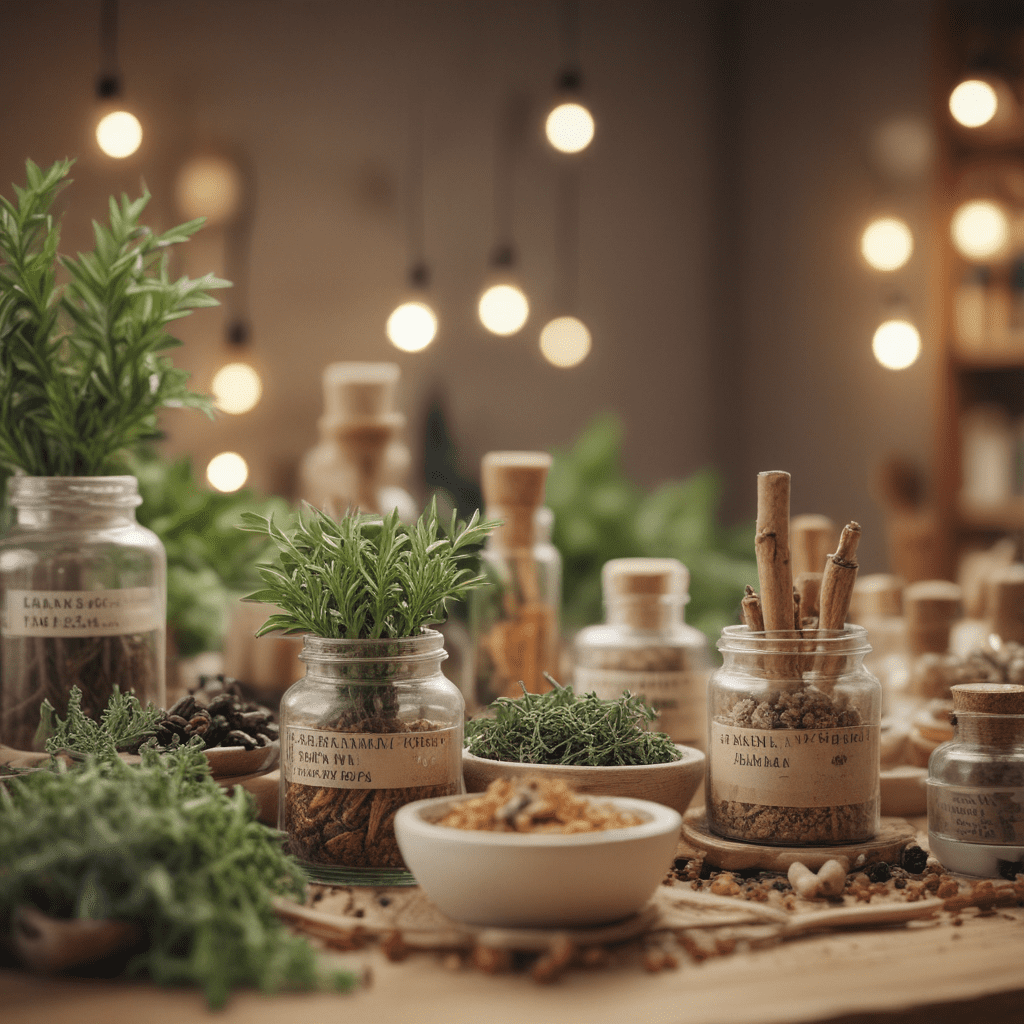
Introduction to Bahrain's Traditional Herbal Medicine
Bahrain's rich cultural heritage encompasses a profound connection to traditional healing practices, particularly herbal medicine. For centuries, Bahraini healers have relied on the therapeutic properties of indigenous plants to treat various ailments and maintain well-being.
Historical Significance and Cultural Practices
Bahrain's herbal medicine traces its roots back to ancient civilizations that flourished in the Arabian Gulf region. Over time, the knowledge and techniques were passed down orally through generations, becoming an integral part of Bahraini cultural identity. Traditional healers played a vital role in rural communities, serving as trusted guardians of health and wellness.
Medicinal Herbs Commonly Used in Bahrain
The arid climate of Bahrain nurtures a diverse array of medicinal herbs, many of which have been documented in historical manuscripts and folk tales. Some of the most commonly used plants include:
- Ziziphus jujuba (sidr): Renowned for its anti-inflammatory, antioxidant, and antibacterial properties.
- Punica granatum (pomegranate): Used to treat digestive issues, reduce inflammation, and boost immunity.
- Artemisia judaica (shih): Known for its antiviral and antibacterial properties and used to treat respiratory ailments.
- Aloe vera (sabr): Widely used to treat skin conditions, soothe burns, and support digestion.
- Olea europaea (olive tree): Used for its antioxidant properties and to support cardiovascular health.
Traditional Healing Methods and Techniques
Bahraini herbal medicine encompasses a range of healing methods that utilize the whole plant or specific parts, such as leaves, roots, or flowers. These methods include:
- Infusion: Soaking herbs in boiling water to create a tea-like beverage.
- Decoction: Boiling herbs for a prolonged period to extract their medicinal compounds.
- Maceration: Soaking herbs in a solvent, such as alcohol or oil, to extract their active ingredients.
- Inhalations: Breathing in the vapor produced from boiling or steaming medicinal herbs.
- Topical applications: Applying herbal preparations directly to the skin to treat wounds, rashes, or other skin conditions.
6. Role of Traditional Healers and Practitioners
Traditional healers, known as "Hakims" in Bahrain, possess a deep understanding of the medicinal properties of herbs and their application in treating various ailments. They are often sought after for their ability to diagnose and recommend appropriate herbal remedies. Their knowledge is acquired through years of experience and is passed down from generation to generation.
7. Preservation and Revitalization of Traditional Knowledge
Recognizing the importance of preserving traditional herbal medicine, efforts are underway to document and revitalize this knowledge. Local initiatives, such as the Bahrain Traditional Medicine Society, are actively engaged in collecting oral histories from experienced healers and compiling written records. These efforts aim to ensure the continuity of this valuable cultural heritage and its availability for future generations.
8. Integration of Traditional Medicine into Modern Healthcare
In recent years, there has been a growing interest in integrating traditional herbal medicine into modern healthcare practices. Hospitals and clinics are incorporating complementary therapies into their treatment plans, recognizing the potential benefits of traditional healing methods. This integration allows patients to access a wider range of therapeutic options and promotes a holistic approach to healthcare.
9. Research and Scientific Validation
Scientific research plays a vital role in validating the efficacy and safety of traditional herbal remedies. Researchers are studying the chemical composition, pharmacological properties, and clinical applications of medicinal plants. This research provides evidence-based support for the use of traditional herbal medicine and helps ensure its safe and effective incorporation into modern healthcare.
10. Conclusion and Future Perspectives
Bahrain's traditional herbal medicine is a testament to the rich cultural heritage and healing wisdom of the Bahraini people. It continues to play a significant role in maintaining well-being and treating various ailments, and its integration into modern healthcare practices is a positive step towards a more holistic approach to healthcare. As research continues to validate the efficacy of traditional herbal remedies, we can expect to see this ancient healing tradition continue to thrive and benefit future generations.
FAQ
Q: Is traditional herbal medicine safe?
A: While many traditional herbal remedies have been used for centuries, it's important to note that not all herbs are safe or effective. It is always advisable to consult with a qualified healthcare professional before using any herbal remedies.
Q: Can I use traditional herbal medicine alongside modern medicines?
A: Some traditional herbal remedies may interact with modern medicines, so it's important to disclose the use of any herbal remedies to your doctor or pharmacist. They can provide guidance on potential interactions and ensure the safe use of both traditional and modern therapies.
Q: Where can I find a traditional healer in Bahrain?
A: There are traditional healers practicing in various parts of Bahrain. You can inquire at local pharmacies or community centers for recommendations. Additionally, the Bahrain Traditional Medicine Society may provide information on reputable traditional healers in the country.


